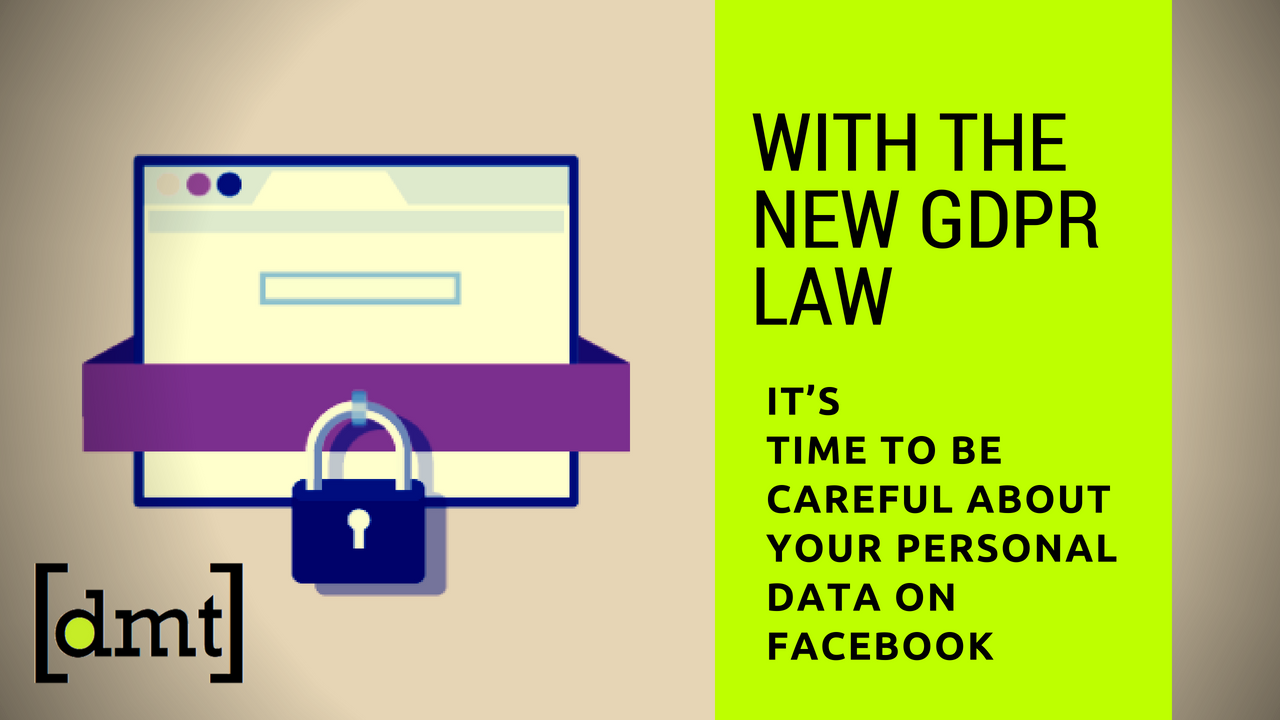Facebook has, for quite some time, been at the centre of data breach controversies, especially since the Cambridge Analytica scam.
With more and more advertisers pulling out of Facebook, the new GDPR law comes as another tricky situation for the widely popular social site.
With the new GDPR law, it’s time to be careful about your personal data on Facebook Share on XThe General Data Protection Regulation (GDPR), which came into effect on 25th May 2018, is a regulation on data protection and privacy for all individuals within the European Union (EU) and the European Economic Area (EEA). It also addresses the export of personal data outside these areas. According to the law, “the GDPR not only applies to organisations located within the EU but it will also apply to organisations located outside of the EU if they offer goods or services to, or monitor the behaviour of, EU data subjects. It applies to all companies processing and holding the personal data of data subjects residing in the European Union, regardless of the company’s location”. Only when the data subject has given a well informed consent, can the data processors and controllers utilize the data for reasons beyond legal basis to do so.
Related articles: Business Branding Ideas: How To Use Facebook For Your Business Branding?
This has caused major disruptions to a host of businesses, apart from the obvious ad tech industry. Many websites have blocked EU users entirely, while some have redirected them to the toned down version of their website, to fall in line with the law without disrupting their current operations. According to Wikipedia, sales volume of online behavioural advertising placements in Europe fell 25–40% on 25 May 2018.
Facebook, made slight amends to their privacy policy, but largely remains unaffected as for most part, it does have the “consent” of the data subject due to its very complicated privacy settings, which most unsuspecting individuals press “I Accept” to. Yet, Facebook claims to make the privacy amends, not just for EU countries, but globally to align with the GDPR. This just means that the privacy settings and consent walkthroughs are going to be trickier than ever with the ultimate motive to exhaust the user until they give up halfway and click that accept button. This frees Facebook from any data breach allegations, from any country of the world, in future. Surely, GDPR comes as a blow to third party apps that misused Facebook data, but how sure can we be about Facebook itself not misusing our data under the pretext of new privacy changes?
Related articles: Digital Advertising: Data Science Algorithms in Digital Advertisements
Nonetheless, ever since the 2016, when GDPR was made and Cambridge Analytica breached the privacy of nearly 87 million Facebook profiles, there has been a fall in the number of advertisers on Facebook, which significantly affected the CPC rates in general. From an advertiser’s perspective, this has been a favourable turn of events, provided they are non-EU based, as they are able to harness greater ROI with lower expenditure, due to the fall in click rates in general.
And hence to sum up, while there might be a short term gain propagated by GDPR, in the long haul, we are going to see Facebook and eventually other data related websites, create a tighter trap around our data, in the name of legislation, by making utmost utilisations of the loopholes in the regulation and finding means to monetise it.
Download PDF – With the new GDPR law, it’s time to be careful about your personal data on FacebookWe can only wonder about living in a world where our online personal data is as secured as a locker in our apartment. Until then, we just need to stay alert.!





